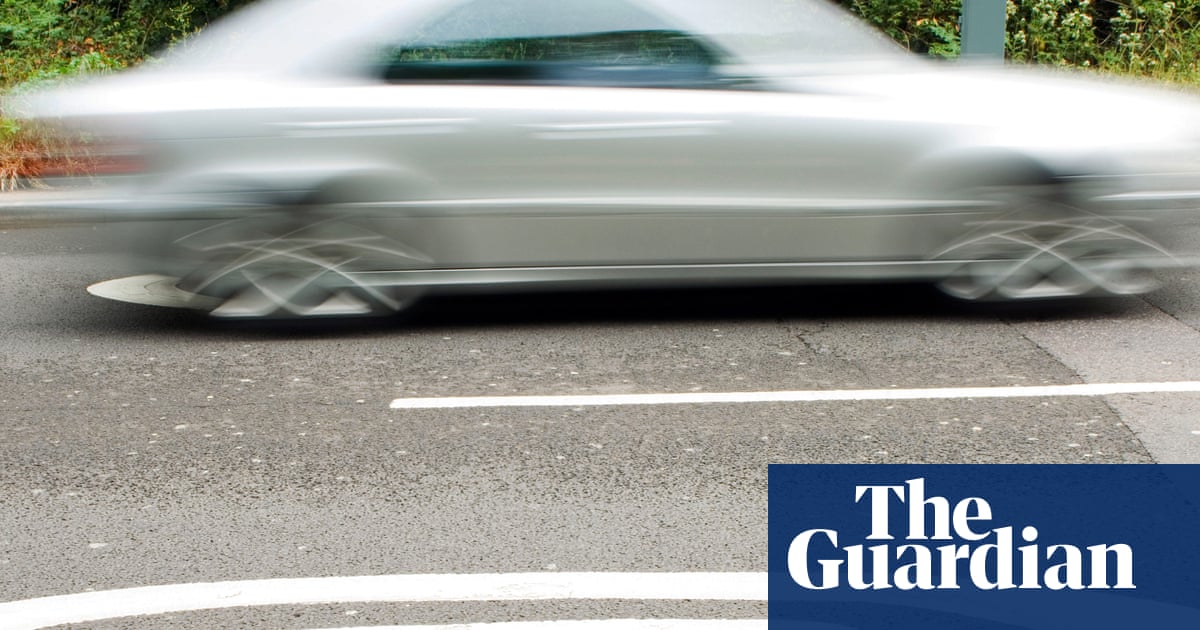All new cars must have the devices from 7 July, adding fuel economy as well as safety. Will mpg become the new mph?
In the highway code and the law courts, there is no doubt what those big numbers in red circles mean. As a quick trip up any urban street or motorway with no enforcement cameras makes clear though, many drivers still regard speed signs as an aspiration rather than a limit.
Technology that will be required across Europe from this weekend may change that culture, because from 7 July all new cars sold in the EU and in Northern Ireland must have a range of technical safety features fitted as standard. The most notable of these is intelligent speed assistance – or colloquially, a speed limiter.
The rest of the UK is theoretically free, as ministers once liked to put it, to make the most of its post-Brexit freedoms, but the integrated nature of car manufacturing means new vehicles here will also be telling their drivers to take their foot off the accelerator. Combining satnav maps with a forward camera to read the road signs, they will automatically sound an alarm if driven too fast for the zone they are in.



They wont be new when most people have used and adapted to them. Limiting speed is taking control. I can imagine situations when having the ability to speed up can save your life or avoid a crash (think overtaking, avoiding falling obstacles or percieved danger from other vehicles with distracted drivers). Theres’s a lot more about this then just limiting speed.
Or it could just be a limiter on top speed. I know there are a few Chevrolets (like the volt) that limit top speed to around 90mph. I’d argue that’s pretty reasonable, as I don’t believe there is a public road where the speed limit is that high in the US. However, I do agree that the bigger issue is phone use and how no one seems to have a simple answer for fixing it (probably need a mandated mode which limits functions when the GPS detects you going over a certain speed, but which would require a large amount of industry cooperation which probably isn’t available).
Lol, this sounds like very American thinking. Yet y’all still make cars with 5 seats.
Should we be locking functionality for people taking a bus or a train?
Should we unlock the functionality again when they go ABOVE a certain speed? Because I’m pretty sure GPS works on planes, too.
How about someone driving who wants to disable some annoying app that the kids in the back seat are using, and knowing that it’d get disabled as long as they go fast enough, speeds up the car beyond the speed limit?
Again, it isn’t an easy solution, but the problem is insanely prevalent. I used to have a 30 min each way commute, and I’d say it was pretty safe to say at least 20% of the drivers I would drive alongside (mind you, above 65mph and generally in larger vehicles) were on their phones and pretty obviously distracted. It is very, very dangerous, and cops don’t really care to stop anyone doing it because its very hard to stop.
Also, what do you mean by 5 seats? I don’t really get the reference.
It’s a reference to the fact that most cars have five seats.
The driver’s seat, the front passenger’s seat, and then three more seats in the back.
Your solution assumes that the only time a person’s phone would be moving as fast as a car would be if that person were driving. Yet there are 4 other seats in a car that could be reasonably occupied by people who each have phones that would be moving just as fast as the driver’s.
The loaner car I just got when bringing my vehicle in for some warranty service, was set by the dealer to max out at 85mph. Given that there’s no road above 65 in my state, that seems reasonable.
Actually my car has parental controls that I’ve never considered using until now. I’m not going to nanny my teen drivers but surely they don’t need to exceed speed limit +20mph